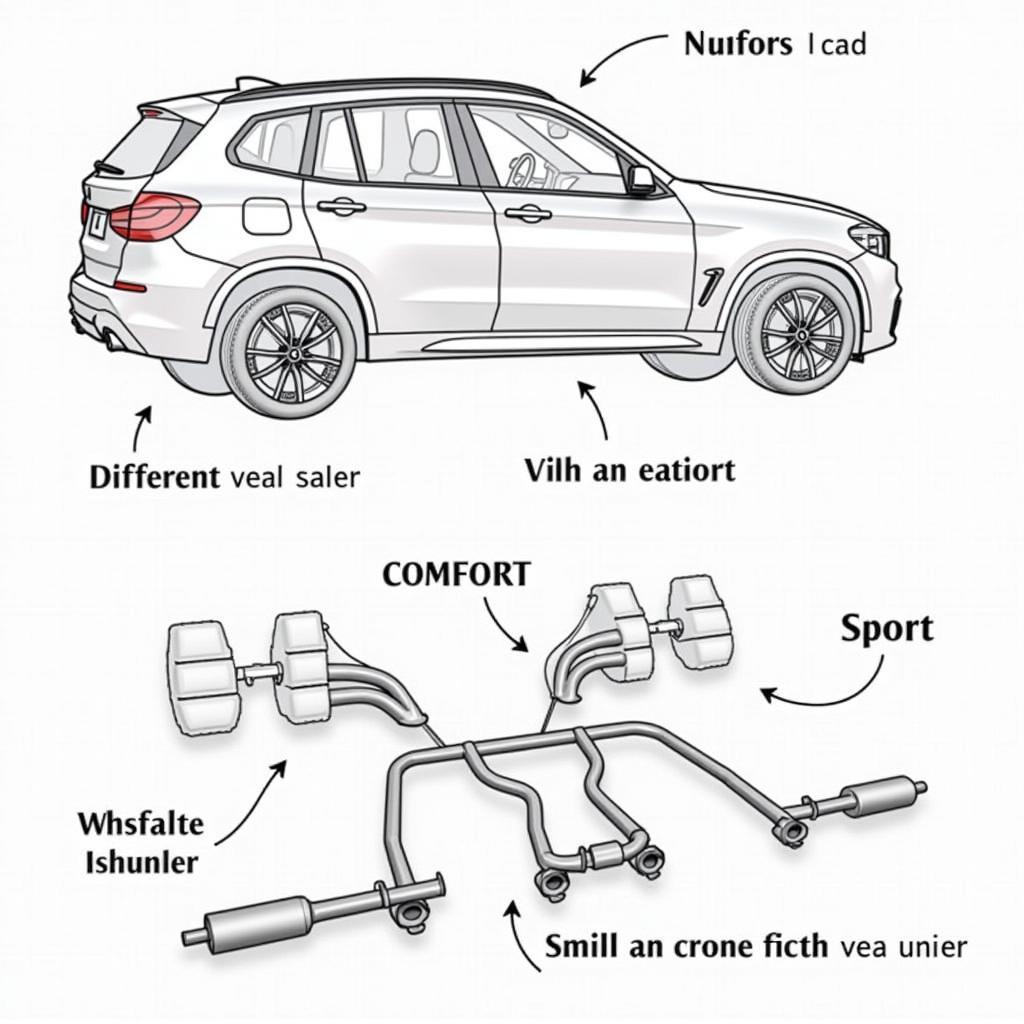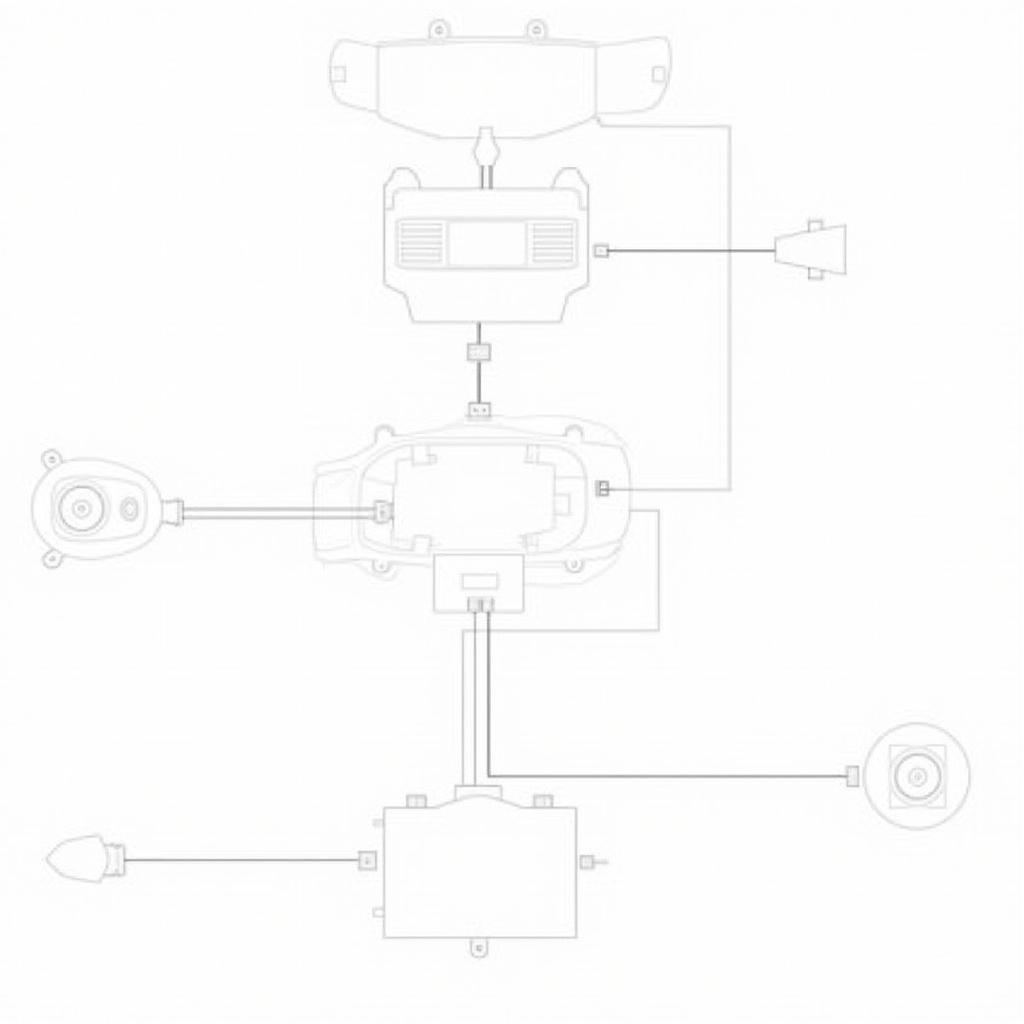A failing alternator can make your BMW sound like a symphony of strange noises. From a high-pitched whine to a rhythmic growling, these auditory warnings shouldn’t be ignored. Recognizing a bad alternator sound is crucial for addressing the issue before it leaves you stranded.
Decoding the Sounds of a Failing Alternator
Your BMW’s alternator is the heart of its electrical system, responsible for charging the battery and powering electrical components. When it starts to fail, it can produce a variety of sounds, often indicating specific problems:
Whining Noise
A high-pitched whine, especially noticeable at idle or low speeds, often signals a failing alternator bearing. This small but vital component allows the alternator pulley to spin freely.
Expert Insight:
“Think of the alternator bearing like the wheel bearing on your bicycle,” says Daniel Carter, Senior Automotive Technician at Cardiagtech. “When it wears out, you’ll hear a high-pitched noise as the metal parts rub against each other.”
Growling or Grinding Noise
A deeper, more aggressive growling or grinding sound can indicate a problem with the alternator’s rotor or stator. These components work together to generate electricity, and damage to either can result in these alarming noises.
Intermittent Sounds
Sometimes, the sounds of a failing alternator might be intermittent, coming and going as you drive. This irregularity can make diagnosis tricky but shouldn’t be ignored.
Expert Insight:
“Intermittent noises can mean the alternator is only failing under specific conditions,” explains Emily Chen, Electrical Systems Specialist at Cardiagtech. “This could be due to heat, vibration, or load on the electrical system.”
Beyond the Noise: Other Symptoms of a Failing Alternator
While sound is a key indicator, a bad alternator can manifest in other ways:
- Dimming or Flickering Lights: As the alternator struggles to generate power, your headlights, interior lights, and dashboard lights may dim or flicker.
- Warning Lights: Your BMW’s battery warning light (a red battery icon) or charging system warning light (a red battery symbol with a plus and minus sign) may illuminate on the dashboard.
- Slow or Malfunctioning Electrical Components: Power windows, radio, and other electrical components may operate slowly or intermittently.
- Difficulty Starting or Stalling: A failing alternator can’t charge the battery properly, leading to difficulty starting the engine or even stalling while driving.
Addressing a Failing Alternator
If you suspect your BMW’s alternator is failing, it’s crucial to address the issue promptly:
- Check the Battery: Before condemning the alternator, ensure your battery is in good condition. A faulty battery can mimic alternator problems.
- Professional Diagnosis: Visit a qualified mechanic specializing in BMWs for a thorough inspection. They can perform tests to diagnose the specific issue with your alternator.
- Alternator Replacement: In most cases, a failing alternator will require replacement. It’s essential to use a high-quality, compatible alternator for your BMW model.
Don’t Ignore the Warning Sounds
Addressing a bad alternator promptly can save you from costly repairs and inconvenient breakdowns. If you notice any unusual noises or experience other symptoms of alternator failure, contact CARDIAGTECH at +1 (641) 206-8880 or CARDIAGTECH[email protected]. Our team of BMW specialists can diagnose and repair your alternator issue, ensuring your BMW’s electrical system is functioning optimally. We are conveniently located at 276 Reock St, City of Orange, NJ 07050, United States.


